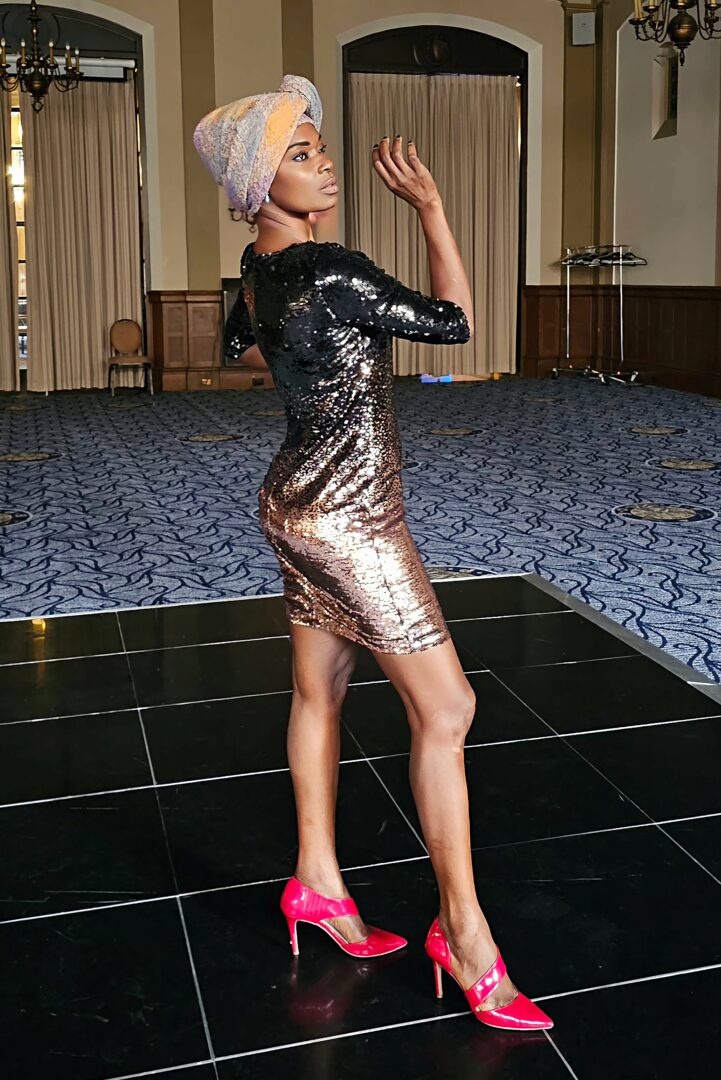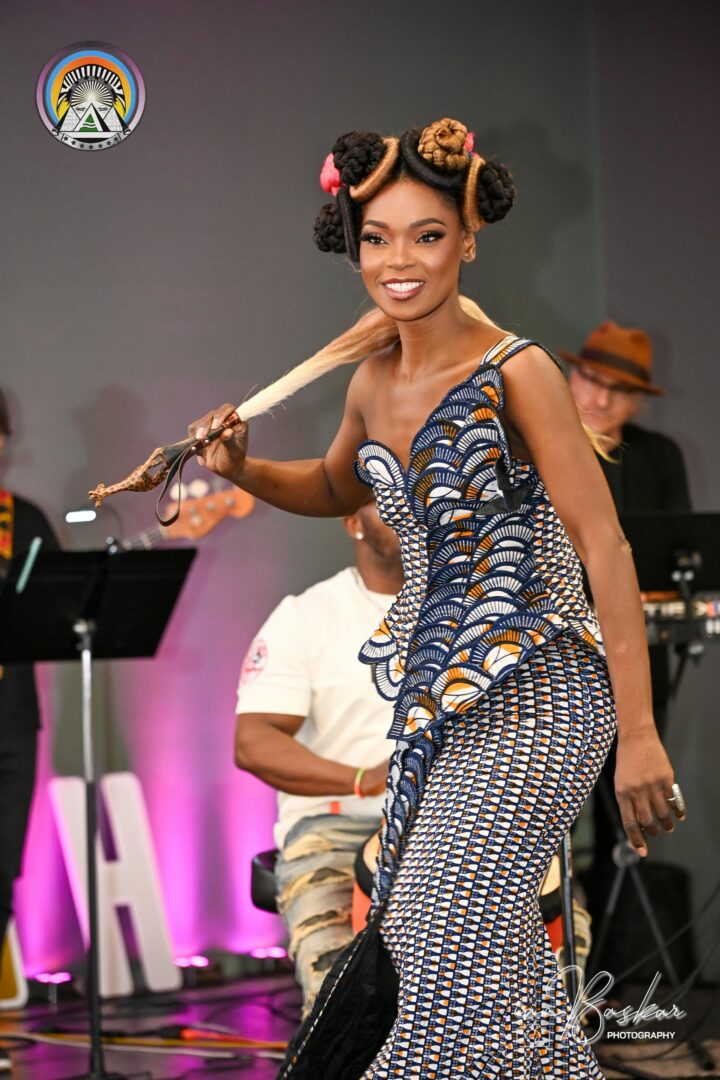FELY TCHACO shared their story and experiences with us recently and you can find our conversation below.
FELY, it’s always a pleasure to learn from you and your journey. Let’s start with a bit of a warmup: Who are you learning from right now?
Currently, I am learning from God. I believe that the most important lessons in life revolve around three key areas:
1. Get to know yourself: Understanding who you truly are is essential for personal growth.
2. Identifying your calling: Recognizing what you are meant to do in life provides direction and purpose.
3. Developing discernment: Cultivating the ability to discern right from wrong, and understanding your circumstances is crucial.
Once you grasp these concepts, finding peace within yourself and fostering harmonious relationships with others becomes achievable. The real challenge lies in acceptance—do you embrace what is? This journey is a unique educational experience where your growth and achievements require no one’s approval but God’s
Can you briefly introduce yourself and share what makes you or your brand unique?
Hello,
I am Fely Tchaco, a serial entrepreneur, passionate visual artist, fashion curator, award-winning recording artist, and philanthropist. I am the founder of the African Arts Academy, a nonprofit organization dedicated to preserving and promoting African traditional and contemporary arts through education and community engagement. I also founded SF MODEFA (San Francisco Modern Ethnic Fashion Week), a dynamic platform that elevates designers and artists from underrepresented communities, showcasing their creativity through fashion, music, and performance.
My journey started in Côte d’Ivoire, West Africa, where I was deeply influenced by the rich oral traditions, music, and vibrant culture of my people, the Gouro. I carry that heritage with me in everything I do from my music, which blends traditional African rhythms with soul, jazz, and contemporary pop, to the work I do through my organizations, which aim to foster cultural pride, dialogue, and empowerment.
As an expat woman, and a creative person, my mission has always been to build bridges between cultures, to celebrate African heritage while embracing innovation and global exchange. My art and projects are rooted in storytelling and healing, often addressing themes of identity, displacement, and social justice.
Currently, I’m working on several exciting initiatives, including a new music album that explores themes of spirituality and resilience, and a series fashion collection as well as collaborative-art installations that spotlight African craftsmanship through a modern lens.
What makes my work unique is its fusion of disciplines such as music, fashion, education, and advocacy; all with the intention of elevating voices that are often marginalized. I believe art can change narratives and transform lives, and I am honored to use my voice and platforms to inspire others and spark meaningful change.
Amazing, so let’s take a moment to go back in time. What breaks the bonds between people—and what restores them?
Trust and respect are the foundation of all meaningful human relationships. When those two elements are broken, whether through betrayal, dishonesty, neglect, or misunderstanding, it creates a deep wound that can sever even the strongest bonds. As someone who comes from a culture rich in oral traditions and communal values, I’ve always believed that healing begins with humility.
Admitting one’s mistakes sincerely, without ego or defensiveness, is the first step toward restoring a broken bond. True forgiveness doesn’t come from simply saying “I’m sorry”. It should come from being willing to confront your own flaws and take accountability for how you’ve hurt someone. In my experience, this level of vulnerability is what opens the door to healing and blessing at the same time.
I’ve witnessed this not only in personal relationships but also in communities, especially within the African diaspora, where historical trauma has created layers of broken trust. Restoring those bonds requires deep listening, empathy, and the willingness to grow. When people show up for each other with honesty and compassion, the broken pieces can be mended in a way that makes the connection even stronger than before.
Ultimately, love, respect, and a shared commitment to truth are what bring people back together.
When you were sad or scared as a child, what helped?
As a child, I experienced deep sadness and fear that shaped my early life in profound ways. One of my first traumatic experiences was being separated from my mother while I was still breastfeeding. That separation created a void and fear of abandonment that lingered for years. Growing up without the comfort and guidance of a mother, especially one from a different tribe made me feel rejected by both individuals and society.
On top of that, I endured both physical and sexual abuse. These experiences left deep emotional scars and often made me feel powerless and voiceless. I didn’t have the protection or support many children are blessed with. My sadness ran deep, but so did my will to survive.
In the midst of this darkness, one thing consistently gave me strength: my God-given talent as an artist. Art became more than not just an outlet, but it also became my lifeline. When words failed, when safety was out of reach, my creativity gave me a way to express my pain, my hopes, and my identity. Through drawing, painting, music, and other artistic forms, growing up, I began to rebuild a sense of self and purpose.
Art not only helped me survive, but it gave me the courage to transform my pain into something meaningful. This is the reason I founded the African Arts Academy. It is not just an institution; it is my legacy, a living testimony of how creativity can heal and empower. I established the Academy to honor the power of art in my life and to offer others the same lifeline that once saved me. Without art, I would not be here today.
I think our readers would appreciate hearing more about your values and what you think matters in life and career, etc. So our next question is along those lines. What important truth do very few people agree with you on?
The important truth that very few people agree with me on is this: Jesus is real. He is the truth, the way, and the source of life. In a world where faith is often dismissed or seen as a personal illusion, I hold firmly to this belief not because I was told to, but because I have experienced it deeply and personally.
For much of my early life, I didn’t know Jesus. I endured immense pain, separation, rejection, abuse, and I often felt completely alone. I wish I had known Him earlier, because His presence brings a peace and clarity that nothing else ever could. But I also believe it’s never too late to come to know God. That realization has changed everything for me.
My faith is not rooted in religion or ritual. It’s grounded in a lived relationship with Jesus, a relationship that brought healing where there was once brokenness, purpose where there was once confusion, and hope where there was once despair. Many people don’t understand this kind of faith. Some question it, others reject it outright. But I know what I’ve experienced, and that truth stands firm with me regardless of how widely it’s accepted. Knowing Jesus transformed my life, and that is a truth I will always carry; whether others agree or not.
Before we go, we’d love to hear your thoughts on some longer-run, legacy type questions. Are you doing what you were born to do—or what you were told to do?
I am doing exactly what I was born to do. This truth revealed itself to me at a very early age, long before I even had the words to explain it. As a child, I had a vivid dream where I saw myself singing on television, it felt so real, as if I were watching a glimpse of my future. That vision stayed with me, not just as a fantasy, but as a calling.
Even before I fully understood the world around me, I was already expressing myself through art. I was drawing, painting, dancing, and singing with a passion and confidence that felt instinctive, not taught. These creative gifts were more than just hobbies; they were a lifeline, a compass pointing me toward my purpose.
While others around me may have tried to steer me in different directions, deep down I always knew that art, in all its forms, was not just something I enjoyed, but something I was meant to do. Creativity was how I made sense of the world, how I healed, and how I connected with others.
Today, I continue to carry that legacy. Through my work as an artist and founder of the African Arts Academy. I live out my calling with pride and gratitude. I’m not simply here to copy others, I’m walking the path I was born to create.
Contact Info:
- Website: https://www.felytchaco.com
- Instagram: https://www.instagram.com/felytchaco
- Linkedin: https://www.linkedin.com/felytchaco
- Twitter: https://www.twitter.com/felytchaco
- Facebook: https://www.facebook.com/felytchaco
- Youtube: https://www.youtube.com/felytchaco
- Soundcloud: https://www.soundcloud.com/felytchaco

Image Credits
First image is by Baskaran Deivasigamani. Second picture is a selfiy, Third photo by Allan Yang.
so if you or someone you know deserves recognition please let us know here.




